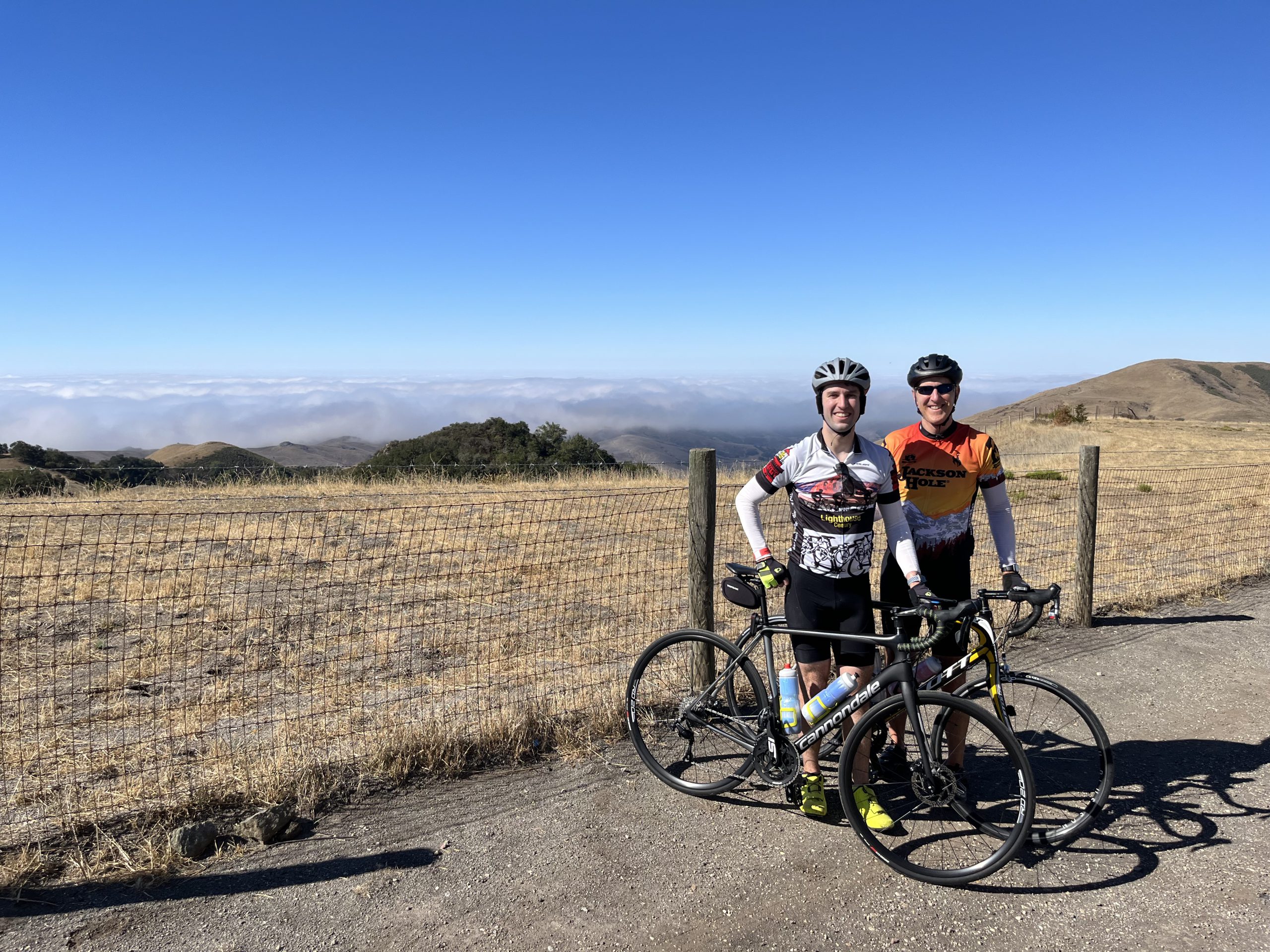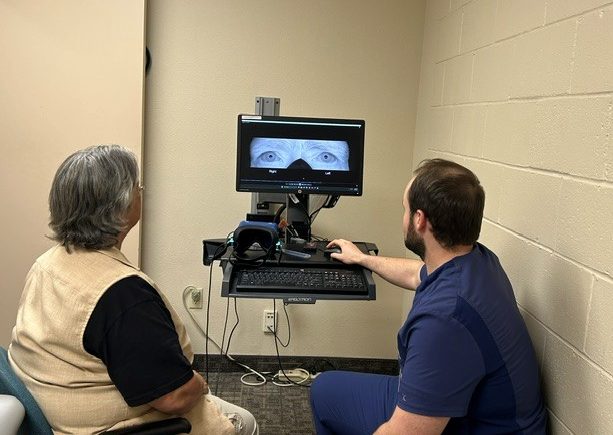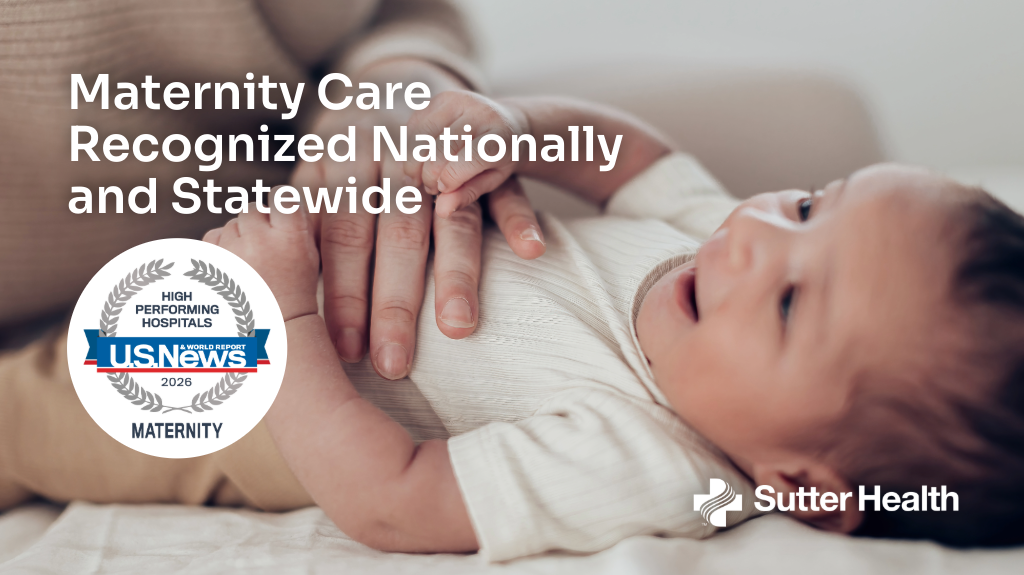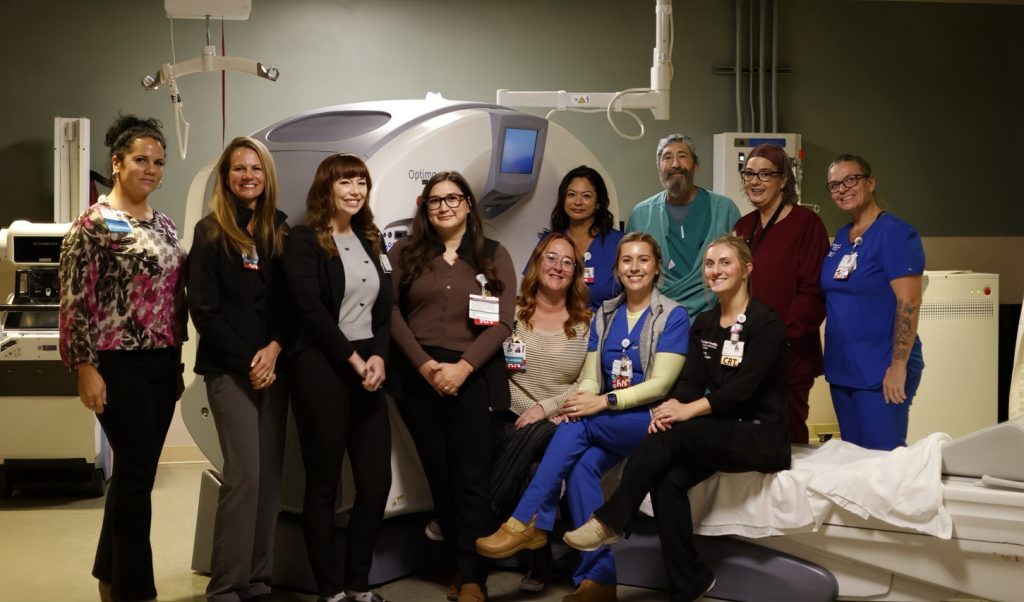By Karin Fleming and Liz Madison, Vitals contributors
Modern society loves “early.” A chance at an early flight check-in or an early preview of an artist’s new music are viewed as perks. And yet, the same enthusiasm hasn’t fully translated into early cancer screenings, especially for colorectal cancer. Healthcare at large, and California-based Sutter Health in particular, is looking to change that with new and convenient ways to help educate patients on the importance of early screening for cancer and put them at greater ease before related procedures.
Early screening for colorectal cancer is something Sutter patient Scott Gibson encourages his friends and family to take seriously. The 65-year-old San Carlos, Calif. resident and cycling enthusiast has been cancer free for two years after chemotherapy, radiation and robotic surgery at Sutter’s Mills-Peninsula Medical Center to remove the large tumor above his rectum and kill the cancerous cells that had spread to his lymph nodes and liver.
Restored with the vitality that’s put him back on his bike and into hiking boots again, good health is something Gibson doesn’t take for granted.
“I was so fortunate to receive the compassionate, expert care at Sutter that seamlessly took me from a diagnosis of advanced colon cancer into a coordinated treatment plan where every step was easy to navigate and prepare for,” says Gibson, whose cancer was found by colonoscopy in Nov. 2020—a time when the COVID-19 pandemic had already been causing delays and interruptions in cancer screening procedures across the U.S. and around the world.
Advancing Early Screening and Effective Treatment at Sutter Health
Understanding the importance of early colon cancer screening and helping individuals get on track sooner, Sutter launched a Colonoscopy Digital Care Companion—a new program that provides patients pre-procedure education on the importance of screening, tips on how to prepare for a colonoscopy and reminders to prepare for their upcoming procedure.
Patients are provided follow-up information after the colonoscopy.
“Colon cancer is preventable with routine colonoscopy screening. The majority of colon cancers develop from pre-cancerous polyps that can be identified and removed during colonoscopy,” says Dr. Sanjay Ramrakhiani, M.D., medical director for the gastroenterology service line at Sutter’s Palo Alto Foundation Medical Group. “With this new Care Companion, our goal is to improve the patient experience of care and increase access for the thousands of Sutter patients aged 45 years and older who need colonoscopy and colon cancer screening.”
Dr. Ramrakhiani adds, “Screening with colonoscopy helps identify tumors at early stage, improving the odds of effective treatment. If an individual receives a colon cancer diagnosis, cancer specialists at Sutter work together as a multidisciplinary team to provide compassionate, personalized care— from outpatient colonoscopy for diagnosis, to surgery and any chemotherapy or medical therapy that may be needed.”
Several tests can be used to screen for colorectal cancer. If an individual chooses to be screened with a test other than colonoscopy, any abnormal test result should be followed up with a timely colonoscopy. “The most important thing is to get screened, no matter which test an individual chooses. With new and expanded approaches to screening, we can help catch colorectal cancers as early as possible, bringing patients a greater chance to live cancer free,” says Dr. Ramrakhiani.
A Shift to Earlier Screening Helps Save Lives
Colon cancer is the fourth most common type of cancer in the U.S. Overall, the lifetime risk of developing colon (or, colorectal) cancer is about one in 23 for men and one in 25 for women. However, each person’s risk might be higher or lower than this, depending on their risk factors for colorectal cancer.
“The rate of people being diagnosed with colon or rectal cancer each year has dropped overall since the mid-1980s, mainly because more people are getting screened and changing their lifestyle-related risk factors. But this downward trend is mostly in older adults. In people younger than 55 years of age, rates have been increasing by 1% to 2% a year since the mid-1990s,” says Dr. Natalia Colocci, a medical oncologist at Sutter’s Palo Alto Medical Foundation and a member of Gibson’s care team at Sutter who tests him every five months for any potential cancer recurrence.
Sutter Health offers colonoscopy screenings at no cost to patients at select clinics across its integrated network. These clinics are located at Fort Sutter Surgery Center in Sacramento, Stockton Surgery Center, Sutter Roseville Endoscopy Center, Mid Peninsula Endoscopy Center in Burlingame, Palo Alto Medical Foundation’s San Carlos Center and the San Francisco Endoscopy Center.
And because some studies suggest Hispanic communities have the lowest colorectal cancer screening rates in the United States, doctors and leaders at Sutter’s Institute for Advancing Health Equity are working to increase screening rates in those communities through education and awareness building, right where patients live.
Dr. Colocci says the downward trend is a top reason cancer screening guidelines changed to help increase early detection: the earliest age someone with an average risk of colon cancer may now screen is 45. These updated guidelines are courtesy of national organizations such as the U.S. Preventive Services Task Force and the American Cancer Society, among others.
Clinical research recently uncovered the potential benefits of lowering the original recommended screening age of 50. Earlier detection of cancer increases the chances of earlier treatment and beating the disease. The Colorectal Cancer Alliance estimates that individuals with colorectal cancer have a 90% survival rate with early detection. Early screening is especially important for those who have a family history of colorectal cancer, where screening is encouraged starting at age 40 or 10 years prior to the age when their family member was first diagnosed with colon cancer.
The importance of knowing one’s family history of the illness is something Gibson now takes to heart: his grandmother died of colon cancer at age 50. It’s a piece of his “family tree” Gibson has made his son and daughter aware of so they will be better informed before undergoing colonoscopy screenings in the future.
Overcoming Stigma with Education and Communication
“Stigma remains a steep barrier for some when it comes to colorectal cancer screening. Some people fear the screening procedures are too invasive and too uncomfortable,” says Dr. Colocci.
And some cultures even view the screening tools as taboo. A 2023 study provided greater insight into why 45-year-olds avoid the test, which include lack of time, unaware of new age guidelines and feeling in good health overall.
“Perhaps one way to help overcome concerns is through more open communication,” says Dr. Colocci. She suggests making it a safe place to talk about one’s experiences with colonoscopies or other colorectal cancer screenings are a start. Anecdotally, many people will say that the procedure itself was much more comfortable than they expected, and the prep was so much easier than anticipated with more options than ever.





